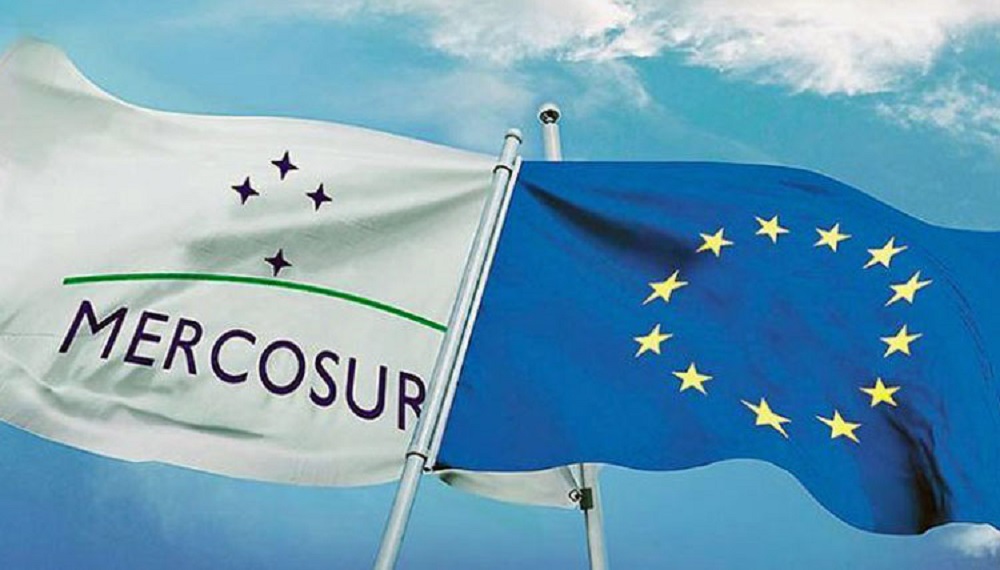RIO DE JANEIRO, BRAZIL – The Argentine government intends to remove ideology from discussions with Brazil in both the political and commercial spheres. For this reason, Argentinian Foreign Minister Felipe Solá will be proposing a truce that includes deferring the Mercosur discussion on the trade agreement with the European Union so that it may proceed with specific integration projects.
“The goal of this visit [to Brazil] is to bring us closer together. Let’s be clear: on this visit we are committed to Argentine foreign policy. We are committed to our position in Mercosur, in the American continent and in the world. And we will not refer to our [political] bases because, otherwise, the deal is ideologized,” the minister said to journalists.

“Ideology should never be an obstacle to dialogue. We will travel to Brazil in such a spirit. And there is a chance that we will see President Bolsonaro,” he said.
Felipe Solá will have a much more political than business meeting on Wednesday in Brasília to end the political quarrels, after months of cross-strikes between the presidents of Brazil, Jair Bolsonaro, and Argentina, Alberto Fernández.
The Argentinian minister is to emphasize the significance that Fernandez’s government attaches to Brazil and wants to know the true value that Bolsonaro’s government places on Argentina.
The Argentine government would like to know if Bolsonaro’s attacks are intended for Brazilian domestic politics or whether they are a strategy to distance himself from Argentina, Brazil’s main partner in foreign policy, and move closer to the United States.
As a sign of good faith, the Argentine government is willing to set aside its political affinity with the Workers’ Party of ex-President Luiz Inácio Lula da Silva in order to prioritize the Brazil-Argentina relationship, the core of regional integration.
“Our position has nothing to do with Argentine domestic politics. If half of those who voted for us want us to insult Bolsonaro, this does not concern us. We will pay whatever the cost. The most important aspect is not to deepen the distance with Brazil,” Solá points out.
As for commercial ideology, Argentina wants to wrap up the discussion of trade openness, advocated by Bolsonaro, versus protectionism, advocated by Alberto Fernández’s Peronist government.
In practical terms, it intends to set the Mercosur-European Union trade agreement aside, for the time being, in order to advance a joint Brazil-Argentina strategic agenda. This view was shared by the Argentinian minister during the closing of a meeting with Mercosur legislators 24 hours before he boarded a flight to Brasília.

“The Mercosur-European Union agreement is placed in the center of debate between Argentina and Brazil as if we first had to say what we think about the agreement and what we are going to do about it in order to then talk about integration,” Solá criticized, advising that he will propose the opposite to his Brazilian minister: to advance with the bilateral agenda in order to then discuss the agreement.
The free trade agreement between the two blocs was signed in June, after 20 years of negotiations. The text is in legal revision and will then be discussed by the parliaments of each country. In December, when the new government took office, Argentina wanted to reconsider some points in the agreement because it felt they affected its industry, which had been weakened by the severe economic crisis.
The strategic agenda that Argentina is proposing to Brazil includes projects to enhance integration, such as the joint development of alternative energy sources; the association of Brazil’s offshore oil exploration (pre-salt) with Argentine shale oil in Patagonia; the joint implementation of 5G technology; a new border security model; and a role of international importancein nuclear development.
“It is an agenda that binds us together, that allows us to rebuild the bilateral relationship because we have to generate jobs,” Solá said.
Argentina also wants to address the environment in both countries because, according to Felipe Solá, Europe has built a notion that Mercosur’s agricultural production is based on the destruction of forests and cheap labor, based on the fires in the Amazon.
“There are opposers to the Mercosur-European Union agreement because they think we will send cheaper goods from irrational extraction of natural resources,” he criticized.
Argentina will also ask for Brazil’s support in the process of renegotiating the government’s debt with the International Monetary Fund and will also discuss Venezuela and Bolivia.
The attacks between Jair Bolsonaro and Alberto Fernández began in June when Bolsonaro started campaigning for the re-election of former President Mauricio Macri. The following month Alberto Fernández visited Lula in prison and later, in October, he called for Lula’s release during his victory speech. When he was released in November, the already elected Alberto Fernández welcomed ex-President Dilma Rousseff.

Bolsonaro refused to congratulate Fernández on his victory and did not attend the Argentinian president’s inauguration in December. In August, Bolsonaro also alerted to the risk of Fernández turning Argentina into a new Venezuela. And Fernández replied that the criticism coming from someone “racist, misogynous and violent” only benefited him.

